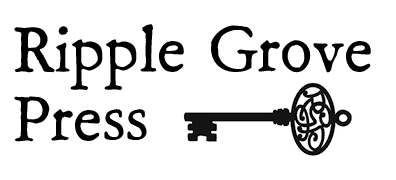Salad Pie
author: Wendy BooydeGraaff
illustrator: Bryan Langdo
Hardcover picture book
44 pages
8 x 10 inches
$17.99
ISBN: 978-0-9913866-4-2
Release date: March 1, 2016
Other titles by this illustrator: Mr. Tanner
About the Book
There is nothing sweeter than arriving at the playground, seeing it empty, and knowing you have it all to yourself–the silent comfort of playing alone.
Maggie is overjoyed to have that solitude to make her Salad Pie. But then Herbert saunters over and wants to play too.
"I'm making salad. Salad Pie. And don't you touch it!"
Herbert just wants to help, even though Maggie makes it clear she won't let him.Then her imaginary pie takes a spill, and she realizes Herbert's intentions are not so bad after all.
About the Author/Illustrator
Wendy BooydeGraaff grew up making mud pies on a fruit farm in Ontario, Canada. She now lives in Michigan with her family, where she whips up all kinds of salads and all kinds of pies. Visit her at www.WendyBooydeGraaff.com. For an in-depth profile about Wendy, click here.
Bryan Langdo is the illustrator of over thirty books. His picture book Tornado Slim and the Magic Cowboy Hat won a 2012 Spur Award for Storytelling from Western Writers of America. In addition to his work as an illustrator and writer, Bryan works as an editor for an ESL website and app. He also runs errands for his wife’s nature-based nursery school. Bryan lives in Hopewell, NJ, with his wife and two children. When not working, he likes to be in the woods. Visit him at www.BryanLangdo.com. For an in-depth profile about Bryan, click here.
Reviews
From Midwest Book Review, March 2016:
"Salad Pie" is a delightful story about comparing solitary and shared, or cooperative play. Lighthearted, jaunty, colorful illustrations animate the tale of Maggie, who wanted to have the playground all to herself to make Salad Pie, and Herbert, who came, at first unwelcome, to share her Salad Pie creation and celebration. At first Maggie simply warned Herbert not to touch her Salad Pie as she created it, refusing his offerings of extra clover for the hat full of Salad Pie. But when she spilled pieces while tossing the Salad Pie, Herbert picked them up to return, which Maggie ungraciously allowed, still preventing him from touching her Salad Pie. The play time continued, with a surprise assistance from Herbert in a moment of unexpected chaos! From then on, the making, baking, dancing, and singing of the game of Salad Pie became a shared celebration! Even more exciting, the adventure ends with two children singing together, "Sandwich Stew, oh Sandwich Stew. Tomorrow we will brew Sandwich Stew!" Clearly, there are advantages to learning to share play with friends!
From Foreword Reviews, February 29, 2016:
Reviewed by Catherine Reed-Thureson
Learning to share and play nicely with other children can be a challenge. In Salad Pie, Maggie finds the playground deserted when she arrives. This, she feels, is the perfect environment for making salad pie. She is not happy when Herbert shows up to help her. However, when her beautiful salad pie takes an unexpected tumble, Herbert is there to save the day, and Maggie realizes that salad pie is even better when shared. Colorful, energetic depictions of the children at play support and illustrate the story’s important lesson.
From School Library Journal, February 1, 2016:
Maggie believes the only way to make salad pie is in the park by herself. There should be no noise and, most importantly, no help. Herbert’s appearance makes her grumpy at first, but when she realizes she can’t scare him away, she reluctantly allows him to help add a garnish or two to her dandelion, crab apple, and clover salad. When Maggie falls off the slide performing her salad song-and-dance routine, Herbert is there to catch her and the salad. The qualities anyone would want in a friend are clearly visible in Herbert at that moment. The characters in this story are old enough to go to the park by themselves, and they appear to be of different racial backgrounds. Maggie might be considered a loner, but when Herbert impresses her with his imaginative culinary skills, she is willing to change her plans for the day and make a new friend. After reading this book, take a child outside and see what they can invent with the ingredients they find in the yard or on a walk. VERDICT A fine addition to collections in need of imaginative friendship tales.–Tanya Boudreau, Cold Lake Public Library, AB, Canada
From Kirkus Reviews, January 9, 2016:
The park is the perfect place for culinary imagination—and friendship. Maggie's pleased that the park is empty and quiet, perfect for making Salad Pie. Then Herbert appears and asks what she's doing. The park's no longer empty or quiet. Still, she goes ahead with her plan. As Herbert watches, she walks in a wide arc around him, gathering stems of clover, dandelion leaves, some soft crab apples. She mixes them in her floppy hat, then tosses in some wood chips. A few fall out onto the ground, and Herbert scurries to pick them up. He tries to drop them back into the salad, and Maggie grabs his wrist to make sure he doesn't touch. But she accepts the pieces. "Magnificent," she declares, then climbs the slide, up up up and, at the very top, starts to sing and dance. When she loses her footing, she and her Salad Pie take a tumble, but Herbert is there to catch her and all the flying pieces. This time she lets him help. The missteps in BooydeGraaff's tale of budding friendship make it all the more interesting and believable. Langdo's watercolors bring character to the forefront; Maggie has light-brown skin and a wild mop of springy brown hair, while Herbert is a leggy white boy with short brown hair. Warm and winning. (Picture book. 4-7)

